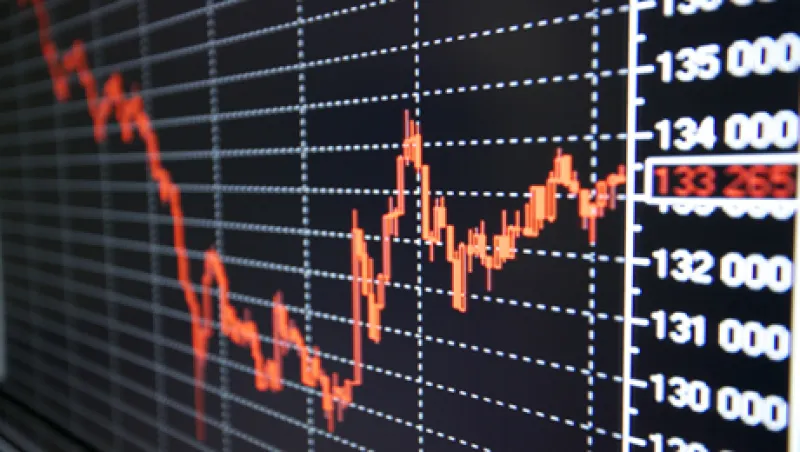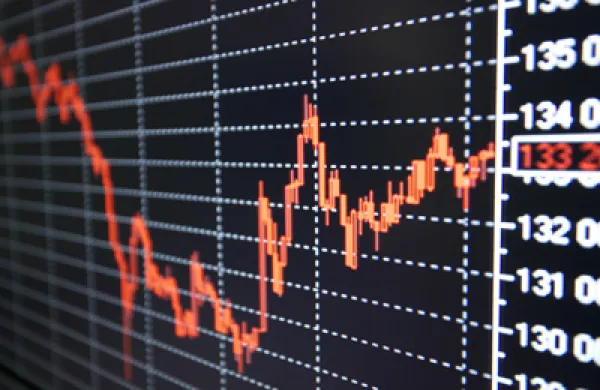Financial regulators in Europe and the U.S. are struggling to figure out respond to the fast growth of the $1.6 trillion exchange-traded fund industry.
The funds have surged in popularity, because they are different than mutual funds in several important respects. The funds can be traded through the day like stocks. They also allow investors to go long or short and to take on leverage in an effort to boost their gains. While the funds were originally devised for institutional investors, about half of the ETF industry’s global assets are now held by individuals.
ETFs have become controversial, though. The funds, some of which use derivatives and leverage, accounted for a large share of broken trades during the May 6 Flash Crash of 2010. Kweku Adoboli, director of ETFs at UBS, sparked $2.3 billion in losses at the bank because of unauthorized trades. In October, two leaders of the non-profit Kauffman Foundation - chief investment officer Harold Bradley and research director Robert Litan - warned that ETFs were increasing market volatility and driving the value of underlying stocks, which would be a reversal of the supposed natural order.
Many academics say that ETFs really aren’t a primary cause of market volatility--you can blame that on the financial crisis, a weak global economy, and the sovereign debt debacle in Europe. “ETFs basically reflect the underlying market dynamics ... There is no empirical evidence that they have changed the technical dynamics of the market,” says Phil Phan, interim dean of the Carey Business School at Johns Hopkins.
The debate notwithstanding, ETFs have caught the attention of global regulators, and after three years of financial and economic crisis, they aren’t in the mood to give the sponsors of complex securities the benefit of the doubt. The odds are very good that material changes will emerge from the current regulatory overhauls underway in the U.S. and Europe.
After months of comment and review, the European Securities and Markets Authority, an arm of the EU, is expected to issue draft proposals in December or January. After that, plan sponsors will have two months to express their views on the draft. Then, national policy makers and lawmakers across Europe can implement binding provisions on the industry, according to Jeremy C. Jennings-Mares, a London-based partner with the law firm Morrison-Foerster. The ESMA rules are expected to increase disclosure requirements for ETFs and to possibly issue ETF warnings to retail investors.
Separately, he says, changes to two European laws - the Markets in Financial Instruments Directive and the Markets in Financial Instruments Regulation - would increase transparency of ETF pricing, before and after a trade, to the same level now required of share trading.
“The costs of selling and advising on ETFs is set to increase in the EU, by virtue of the proposed MiFID changes,” Jennings-Mares said. And he warned that ESME’s proposed recommendations will force sponsors to conduct more due diligence on the appropriateness of their products for certain investors, thereby increasing compliance costs and the overall costs of bringing ETFs to market.
It is hard to say what the magnitude of the cost increases might be. But one of the selling points of the ETF industry has been its cost structure, which is generally lower than that of the mutual fund industry.
In the U.S., where the use of complex “synthetic” ETFs is less common, regulation is moving at a slower pace. The Senate hearings in October focused more on the effects of ETFs on the market, and less on ETFs as investments, says Anna T. Pinedo, a New York-based partner at Morrison-Foerster. However, the enforcement and market regulation arms of the Securities and Exchange Commission also may take a look at ETFs, she said. Their attention could focus on four areas: the use of leverage and derivatives, investor suitability, market effects, and enforcement.
Eileen Rominger, head of the SEC’s division of investment mangement, told the Senate last month that “the commission has been actively following, and continues to engage in the analysis of, these products.”
As the ETF industry grows, it is likely to attract a much more watchful eye from regulators and policymakers around the world.






